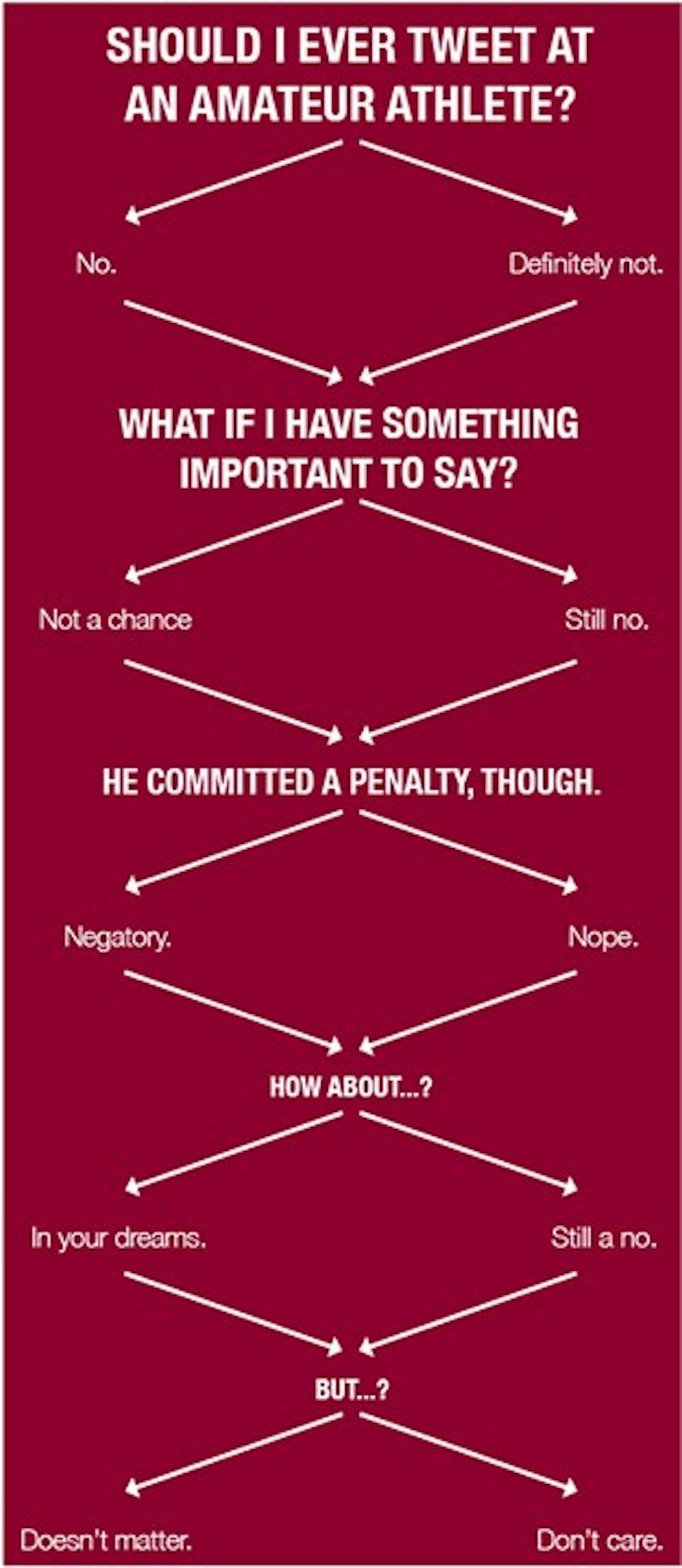On Saturday, Central Michigan defensive end Mitch Stanitzek made a poor call. Well after Syracuse starting quarterback Eric Dungey had released a pass, Stanitzek hit Dungey in the head and gave him a concussion.
Stanitzek was ejected for targeting and that was the end of that. Or so we thought.
Since then, Stanitzek has been harassed and threatened by Orange fans on social media, with many insulting his family, friends and even sending him death threats.
As terrible as this sounds, it’s not completely uncommon for fans to cross the line from fandom into the terrible, ugly land of fanaticism. There’s a difference. Fans invest their time and money into games while fanatics invest much, much more.
It happens around here too.
As a sophomore in college, I’ve only been involved with sports media for a little over a year. In my experience, though, I’ve noted several times when fans, even South Carolinians, crossed the line on social media.
As a general rule, coaches and university employees are fair game, to an extent. Monday on "The Paul Finebaum Show," a listener called for Alabama head coach Nick Saban’s retirement following the Tide’s loss to Ole Miss. While unintelligent, the caller has that right. Saban is a university employee and an adult, and if people want to criticize him in the same way as they would Tom Brady or Pete Carroll, they may.
No one save the athlete’s coaches, parents or mentors, however, have the right to criticize a college or high school athlete.
In early February, two-time Gamecock commit Arden Key chose LSU over South Carolina, and Twitter was ripe with unhappy fans. While fans in many cases have a right to be upset, some take it too far. In this case, Key didn't receive any threats, but several fans did take to Twitter page to voice their displeasure with the then 18-year old.
There is no excuse for sending any sort of threat or snide remark at a player, especially if that player is in high school or college. In fact, to avoid the temptation, I would suggest not interacting with these athletes at all on social media.
Fans and fellow students have no right to question, critique or even comment on a student-athlete’s choice concerning where they would like to attend college. Avoid critiquing amateur athletes on Facebook, Twitter, Instagram or any other social media site that they may use. Nothing good comes of it.
In the midst of a game, many fans will call for the backup quarterback or call out a receiver that just dropped a pass. That’s part of the game. It's bound to happen. However, no one should ever tag a player in a negative tweet or post. Amateur athletes play for the love of the game and shouldn't be subjected to social media bullying from fanatical adults that think they know the game better than the actual players.
Don’t call players out; it’s arrogant, unflattering and frankly stupid. College athletes are human and will make mistakes in the heat of the moment. Fans have time to think before they post. So do that, because there's no excuse for trying to embarrass anyone that plays a game they love. Period.

